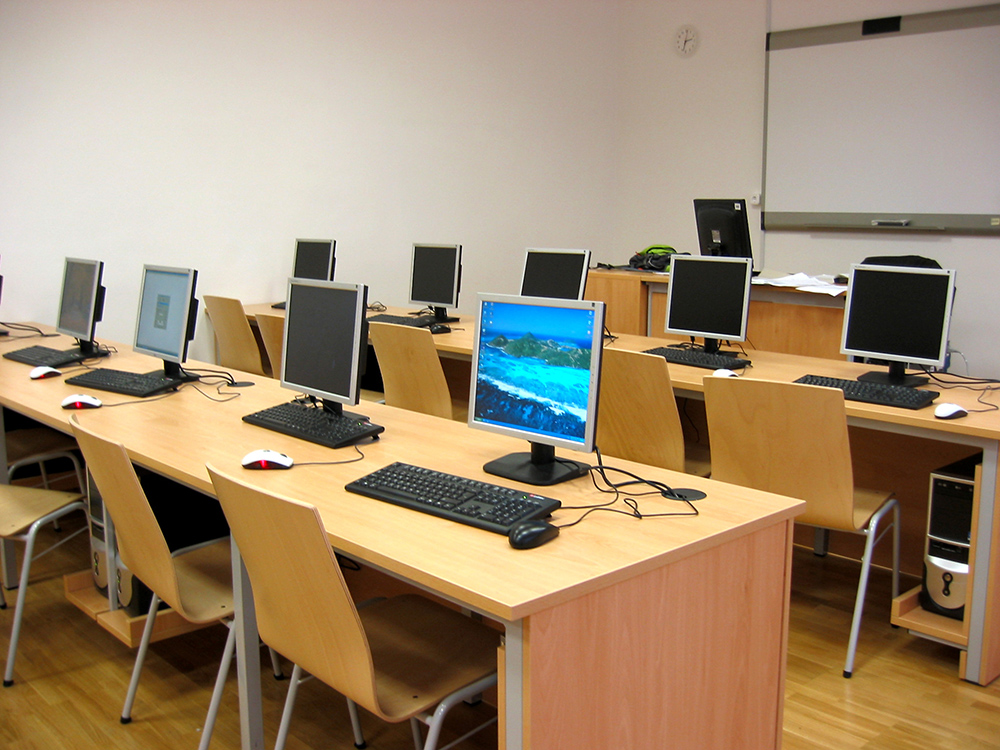By Edgar Wilson
 Public schools at all levels are chronically underfunded across the country. As distance learning models and online education become more sophisticated and effective, they are bound to provide an increasingly valuable cost-saving mechanism for public schools (to say nothing of for-profit institutions).
Public schools at all levels are chronically underfunded across the country. As distance learning models and online education become more sophisticated and effective, they are bound to provide an increasingly valuable cost-saving mechanism for public schools (to say nothing of for-profit institutions).
Regulating the internet in the same manner as other public utilities is necessary to ensure the survival and practicality of online learning. Any throttling, or the creation of a ‘fast lane,’ marginalizes all content produced by those who can’t afford to buy into the fast lane, i.e. schools.
It is already clear that access to public health services, domestically and abroad, is increasingly moving toward a digital platform that relies heavily on broad, equal internet coverage. Education, slowly but surely, is moving in the same direction. Businesses, retailers, job-seekers, and entrepreneurs have already embraced the resources and networking potential of the internet.
The efficacy of online learning depends heavily on free and open access through the internet. Some of the leading criticisms directed at online academic models hinge on whether virtual classrooms provide sufficient interaction: student-student as well as teacher-student. Addressing these kinds of shortcomings typically involves higher-tech solutions, like webcam conferences, video chatrooms, similarly data-heavy streaming and communication services.
These are precisely the kind of services that would suffer from the sort of data-throttling net neutrality aims to prevent.
 Outside of the controversy surrounding distance learning as a replacement for traditional, brick and mortar schools, is the question of basic access. Virtualizing the classroom has the potential to break down access barriers in a way public schools have historically struggled to do. Take, for example, the problematic relationship between poverty, attendance, and graduation. Throughout history and across the country, students from poorer families have spottier attendance records, resulting in worse academic performance.
Outside of the controversy surrounding distance learning as a replacement for traditional, brick and mortar schools, is the question of basic access. Virtualizing the classroom has the potential to break down access barriers in a way public schools have historically struggled to do. Take, for example, the problematic relationship between poverty, attendance, and graduation. Throughout history and across the country, students from poorer families have spottier attendance records, resulting in worse academic performance.
Similarly, America’s deeply entrenched racial and gender divides have managed to persevere well into the digital era, with barriers to educational opportunities reinforcing lifelong struggles for the country’s minorities.
Virtual academic communities have the potential to address these systemic shortfalls by reimagining the whole education delivery platform. While current models attempt to streamline or replicate the traditional classroom, there is no reason creative minds won’t begin to exert their efforts outside of the box as well. Ensuring that coverage and data speeds can keep up with innovation allows transformative change to be conceived, tested, and with any luck, implemented on a meaningful scale.
The integration of infrastructure projects related to transportation has made clear the width and depth of public (and private) interests in maintaining the nation’s roads, bridges, and highways. Similarly, it is conventional wisdom among leaders and employers that the economy of the future requires a more educated workforce.
Distance learning opportunities, from the K-12 level to undergraduate, advanced degrees, and continuing professional education could all benefit from the online model—if the necessary components remain open and fairly managed. The FCC ruling may not guarantee this, but it certainly sets the tone for such a mission, and marries the precedent set by the successful wiring of the nation with telephone lines with the current need for universal internet coverage.
Access to these modern services and networks requires the kind of federal support and regulation the new FCC rules stand at least a chance of providing.
…
Edgar Wilson is an Oregon native with a passion for cooking, trivia, and politics. He studied conflict resolution and international relations at Amherst College, and has split his time between New England and the Pacific Northwest ever since. He has worked in industries ranging from international marketing to broadcast journalism, currently serving as a marketing consultant and blogger.
Tags: Edgar Wilson, FCC, Internet, Net Neutrality, Throttling






 RSS Feed
RSS Feed